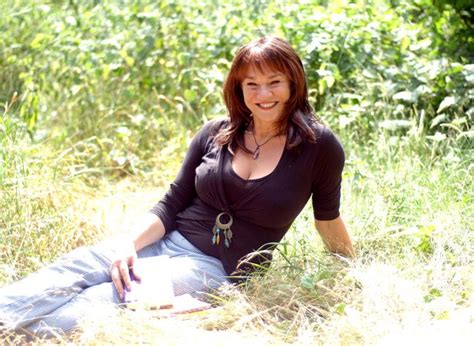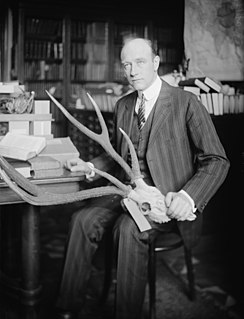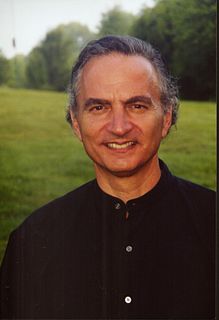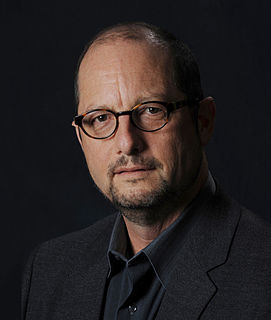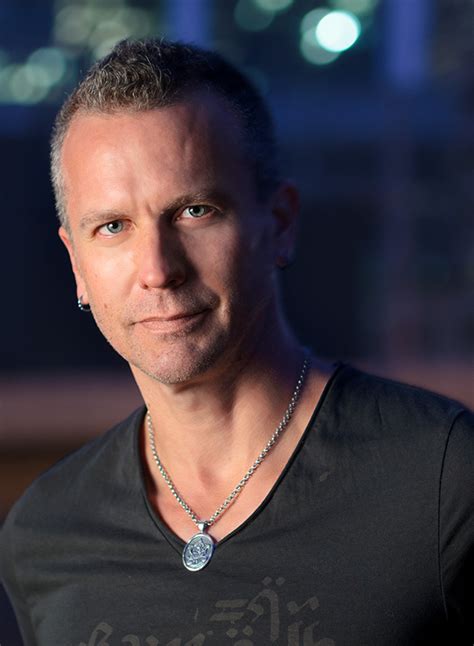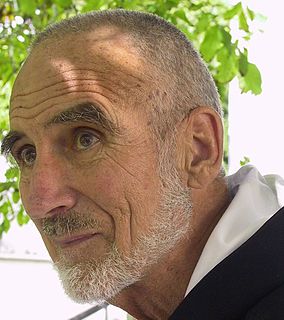Top 150 Lama Quotes & Sayings - Page 3
Explore popular Lama quotes.
Last updated on November 19, 2024.
One Mongolian leader became a very, very brutal dictator and eventually became a murderer. Previously, he was a monk, and then he became a revolutionary. Under the influence of his new ideology, he actually killed his own teacher. Pol Pot's family background was Buddhist. Whether he himself was a Buddhist at a young age, I don't know. Even Chairman Mao's family background was Buddhist. So one day, if the Dalai Lama becomes a mass murderer, he will become the most deadly of mass murderers.
The word 'heart' can refer to an emotional bond between people, and also to the precious faculty of empathy, an 'open heart', which means sharing the feelings of another and includes an outflow of goodwill towards our fellow humans and all life forms. This, of course, is what the Dalai Lama refers to when he says "my religion is kindness", and is closely related to the ability to feel compassion.
Once, at a seminar, I heard a Westernized lama say that a meditator's state of mind should be like that of a hotel doorman. A doorman lets the guests in, but he doesn't follow them up to their rooms. He lets them out, but he doesn't walk into the street with them to their next appointment. He greets them all, then lets them go on about their business. Meditation is, in its initial stages, simply accustoming oneself to letting thoughts come and go without grasping at their sleeves or putting up a velvet rope to keep them out.
The Dalai Lama once said that every human being has two fundamental desires: to be happy and free of pain. I'm interested both in helping people and myself achieve these and also, in the process, finding out what our full potential is as human beings. In essence, there's so much unconsciousness about how/what we eat and how we live which creates the problems that people face. I see so many sick and suffering people when I go on my lecture tours and, if I can help someone find their way back to a life worth living, that's a good day's work.
In the [first] fifteen years [of field work] I can remember just ten times when I had really narrow escapes from death. Two were from drowning in typhoons, one was when our boat was charged by a wounded whale; once my wife and I were nearly eaten by wild dogs, once we were in great danger from fanatical lama priests; two were close calls when I fell over cliffs, once I was nearly caught by a huge python, and twice I might have been killed by bandits.
If I am practicing spiritual poverty, which says that I own nothing, then the problems aren't mine and neither are the energy and compassion pouring through my heart to try to solve them. I am just a link in the process. If I don't take anything personally, then I can do great work without flagging. The Dalai Lama once said, 'Try with all your might - to work very, very hard - to make the world a better place, and if all your efforts are to no avail . . . no hard feelings!'
There are many graphic artists who have interpreted The Ancient One as a Tibetan Buddhist Lama, we're kind of shifting that a bit. We're trying not to be fixed, we're trying not to be fixed to any one thing, any one gender, any one spiritual discipline, and any one race even; we're just trying to wing it beyond that. So it's a new gesture really, just another interpretation.
Now everyone's main objective of taking photographs is to have a photograph for Twitter or Facebook. I find that troubling. If you have an opportunity to meet the Dalai Lama, don't work out your camera or iPhone issues. Sit and a listen to what the man is saying, because nine times out of 10, you're not going to look at that photo. You're not going to look at the video. As a photographer, I don't carry a camera. I have my iPhone, but I don't carry a camera. I want to live.
Dalai Lama is transforming those criteria - and the whole way of conducting politics. He's conducting politics in a much deeper way than most politicians are able to. He's the only politician I know of who's a monk. The Pope, of course, is in a similar position, but the Pope isn't in the same way leading a country of many million people.
Is this what you have in mind,' I asked the Dalai Lama, 'when you say in teachings that the buddhas and bodhisattvas of the world are the most selfish beings of all, that by cultivating altruism they actually achieve ultimate happiness for themselves?' Yes. That's wise selfish,' he replied. 'Helping others not means we do this at our own expense. Not like this. Buddhas and bodhisattvas, these people very wise. All their lives they only want one thing: to achieve ultimate happiness. How to do this? By cultivating compassion, by cultivating altruism.
Gandhi and Mandela and Churchill and JFK and Reagan and Thatcher and Sarkozy and Franklin and Washington set the tone to an incredible degree-their "personal style" was their "brand." ("It" starts with personal style of the tip-top leadership team. Sorry to be politically insensitive, but who would give a hoot about Tibet if it weren't for the look and style of the Dalai Lama?) Boss at any level: You're either on the "it" boat-or not.
We need a sense of the oneness of the 7 billion human beings alive today. When I meet people, I don't think about being different from them, about being Tibetan, Buddhist or even the Dalai Lama. I only think about being a human being. We all share the potential for positive and negative emotions, yet one of our special qualities is our human mind, our intelligence. If we use it well we'll be successful and happy.
When I look back I can think that of course I've been lazy and haven't practiced as much as I could have and have wasted time. Still though, I look back on my life and I think that really, I am very happy that I lived my life the way I have and I would never ever have wished it any other way - especially, the six years with my lama and then the 18 in Lahul.
The whole Hollywood conception of Tibet as this peace-loving country denies the complex humanity of the Tibetan people. Their ideas exist in a high degree of tension with impulses toward corruption, toward violence, toward all sorts of things. The Dalai Lama himself would say that he has to fight these impulses himself on a daily basis.
Most people would say "Ah, Mahatma Gandhi, what a wonderful man, Mother Teresa, maybe Martin Luther King Jr., Nelson Mandela, Dalai Lama." And when you look at those people it's not the macho, aggressive, successful people, we may envy them, their bank balances and kind of thing, yes and for being successful. But we do not revere them.
[P]eople need to use their intelligence to evaluate what they find to be true and untrue in the Bible. This is how we need to live life generally. Everything we hear and see we need to evaluate—whether the inspiring writings of the Bible or the inspiring writings of Shakespeare, Dostoevsky, or George Eliot, of Ghandi, Desmond Tutu, or the Dalai Lama.
In agony unknown He bleeds away His life; in terrible throes He exhausts His soul. "Eloi! Eloi! lama sabachthani?" And then see! they pierce His side, and forthwith runneth out blood and water! This is the shedding of blood, the terrible pouring out of blood, without which, for you and the whole human race, there is no remission.
Dalai Lama has made new opportunities for women that they never had in Tibet, introduced science into the monks' curriculum and had Tibetan students in exile take their classes in English after the age of ten so that they will know more about the outside world. But one of the great things he's done is to bring all the Tibetan groups together in exile, as perhaps they couldn't have been when they weren't in exile and they weren't under such pressure.
Unlike many spiritual leaders, Dalai Lama is never been in a position to just sit on a mountain top handing out wisdom. He's had to live out his principles in the middle of this very complex situation, every day for sixty years or more. I think it's something that moves many people about his example.
So for all that we might speak words in each other's vicinity, this could never develop into anything that could be called a conversation. It was as though we were speaking in different languages. If the Dalai Lama were on his deathbed and the jazz musician Eric Dolphy were to try to explain to him the importance of choosing one's engine oil in accordance with changes in the sound of the bass clarinet, that exchange might have been more worthwhile and effective than my conversations with Noboru Wataya.
When people ask the Dalai Lama, "Is Buddhism a religion?" he answers, "Yes, it is." Then they ask, "What kind of religion is it?" He responds, "My religion is kindness." You might think, "Everyone's is." Everyone's is. That's true. It's not complicated to describe the goal of a spiritual life. It's easier than you think to explain it. It's more difficult than you can imagine to do it.
If there is a true measure of a person's soul, if there is a single gauge of real divinity, of how beautifully a fellow human honors this life, has genuine spiritual fire and is full of honest love and compassion, it has to be right there, in the eyes. The Dalai Lama's eyes sparkle and dance with laughter and unbridled love. The Pope's eyes are dark and glazed, bleak as obsidian marbles. Pat Robertson's eyes are rheumy and hollow, like tiny potholes of old wax. Goldman Sachs cretins, well, they don't use their own eyes at all; they just steal someone else's.
Any part of the piggy Is quite all right with me Ham from Westphalia, ham from Parma Ham as lean as the Dalai Lama Ham from Virginia, ham from York, Trotters Sausages, hot roast pork. Crackling crisp for my teeth to grind on Bacon with or without the rind on Though humanitarian I'm not a vegetarian. I'm neither crank nor prude nor prig And though it may sound infra dig Any part of the darling pig Is perfectly fine with me.
Among the many things that profoundly impress me about the Dalai Lama, quite high up on the list is his ability to say "I don't know". I've often wished that other people in prominent positions wouldn't feel the compulsion to have an answer for everything and would feel equally free to say "I don't know." It's a sign of wisdom to know that you don't know and a sign of stupidity to think that you know everything. I admire it enormously in him, and wonder why so few people in leading positions reach that stage.
It's impressive that a man [Dalai Lama], on the day after his Nobel Prize was announced, in October, 1989, said to me, "I really wonder if my efforts are enough?" Most of us, if we just won the Nobel Prize, would think this is vindication, or at last there's a chance for Tibet. He's the rare person who thinks, as a Buddha would, "I don't know if I've done enough, I don't know if I will do enough."



